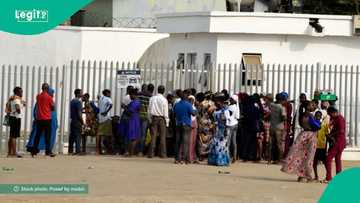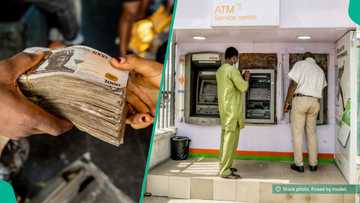Number of Islamic Banks in Nigeria Rises to 5 as New One Begins Operation
- The number of Islamic banks in Nigeria has increased to five as Summit Bank Limited commenced operations
- Islamic banks, including Summit Bank, offer interest-free loans and profit-sharing arrangements
- The bank’s principles are Sharia-compliant, and its banking services are available to all customers regardless of faith
Legit.ng journalist Dave Ibemere has over a decade of experience in business journalism, with in-depth knowledge of the Nigerian economy, stocks, and general market trends.
The number of non-interest, banks, also known as Islamic banks, in Nigeria has risen to five following the official commencement of operations by Summit Bank Limited.
According to the NDIC, the existing Islamic banking operators licensed by the Central Bank of Nigeria are Jaiz Bank Plc, Taj Bank Limited, Lotus Bank Limited, the Alternative Bank andIslamic

Source: UGC
Islamic banks in Nigeria
The Central Bank of Nigeria (CBN), which regulates non-interest banking in line with Sharia principles, approved Summit Bank as a regional Islamic bank headquartered in Abuja.

Read also
Nigerian bank to close accounts of customers with less than N7.5 million balance, gives reasons
The apex bank said it is part of efforts to expand financial inclusion and diversify the country’s financial system.
These banks follow Sharia principles, meaning they do not charge or pay interest on loans.
For example, borrowing N50,000 for a business from an Islamic bank requires repayment of only the principal amount, without any extra interest.
How Islamic bank is different from a traditional bank
- Islamic banks will not pay interest on any savings but give profit.
- They will not charge interest on financial facilities or borrowed money; instead, they focus on partnership-based financing.
- Islamic banks won’t support investments that are against Islamic teachings.
- They don’t and will not support any financial product that offers a lot of uncertainty (Gharar)
- They share profits with their customers
- They share risks with their customers.
How Islamic bank operates
Unlike conventional banks that profit primarily through interest on loans, Islamic banks generate income through trade and investment-based activities. These include:
- Murabaha (sales-based financing)
- Istisna (project and construction financing)
- Salam (agricultural financing)
- Ijara (leasing arrangements)
They also engage in partnership-based financing where profits and risks are shared with customers based on agreed terms.
Despite being Sharia-compliant, Islamic banking is open to people of all faiths. Customers are not required to be Muslims to open accounts or access financial products.

Source: Getty Images
FRC to adopt Islamic finance reporting
The Financial Reporting Council of Nigeria (FRC) has revealed plans to incorporate Islamic Finance Services into the nation’s financial reporting framework by adopting standards set by the Accounting and Auditing Organisation for Islamic Financial Institutions (AAOIFI).
Rabiu Olowo, Executive Secretary and CEO of the FRC, announced in Lagos during the 7th Africa Islamic Finance Conference, according to Vanguard.
He explained that the move aligns with the FRC’s mandate to establish, monitor, and enforce financial reporting standards in Nigeria.
Dr Olowo noted that the rapid growth of Islamic finance in the country including Islamic banking, Sukuk issuances, Takaful insurance, and non-interest capital market products, requires consistent reporting practices that are comparable with global standards.
List of most valuable banks in Nigeria by total assets
Earlier, Legit.ng reported that Nigeria’s 10 largest banks have reported a combined total asset base of N223.41 trillion as of June 2025.
This represents an increase of N10.31 trillion or approximately 4.8% from N213.10 trillion recorded at the end of December 2024.
The impressive growth captured in the financial results of the surveyed banks comes despite inflationary headwinds, exchange rate volatility, and a struggling real economy.
Proofreading by James Ojo, copy editor at Legit.ng.
Source: Legit.ng



